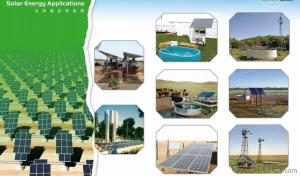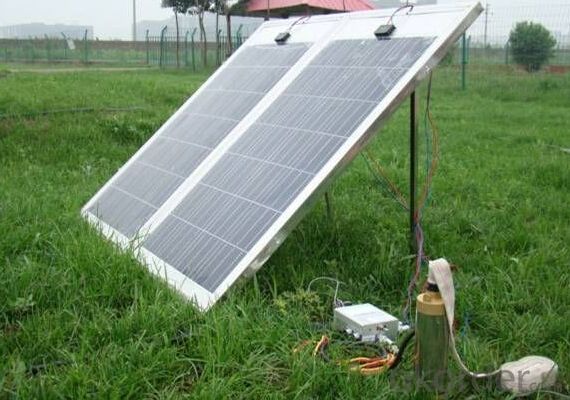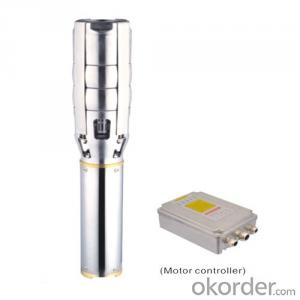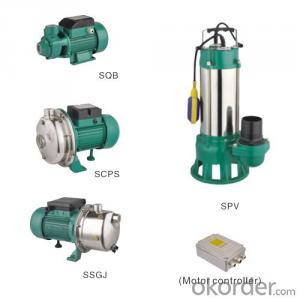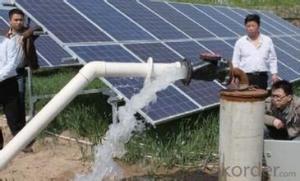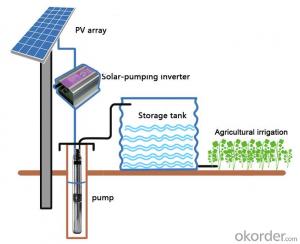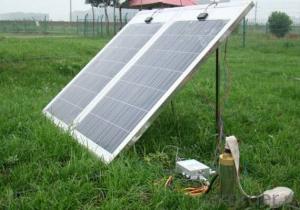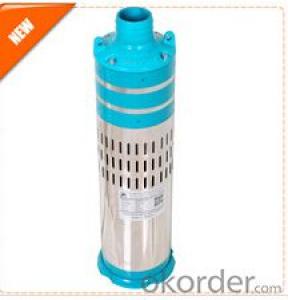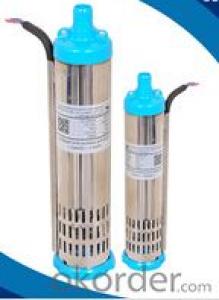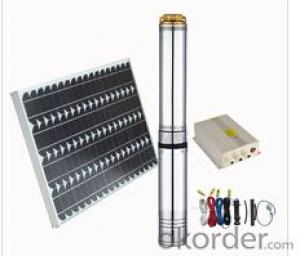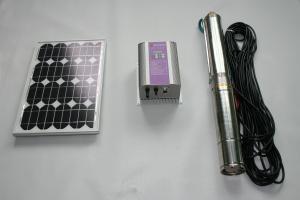Solar Pump System 0.1kw-37kw for Agricultural Irrigation
- Loading Port:
- Shanghai
- Payment Terms:
- TT OR LC
- Min Order Qty:
- 10 pc
- Supply Capability:
- 1000 pc/month
OKorder Service Pledge
OKorder Financial Service
You Might Also Like
Solar Water Pump Centrifugal Pump System 0.8-1KW for Agricultural Irrigation
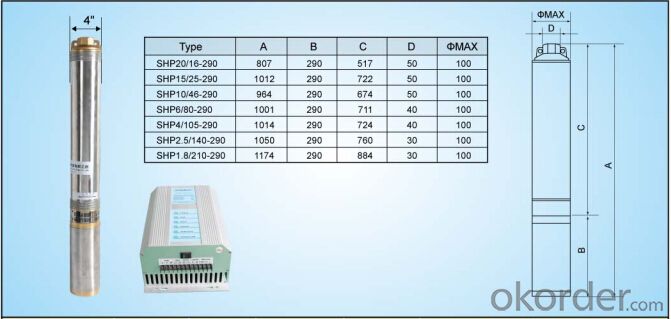
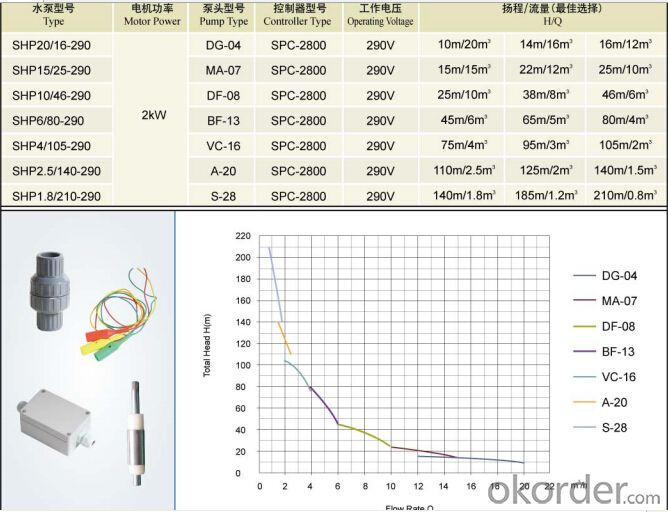
The photovoltaic pumping system is different from the traditional AC pumping system , and the photovoltaic pumping system utilizes solar cells convert solar energy into electric energy , then the photovoltaic pumping inverter drives ac motor for the pump running , and pumping up water from water well , river , lake etc areas and then transport to the destination to satisfy our requests for the water demand .
Photovoltaic arrays adopts solar radiation energy to convert it to electric power ,providing the motive power for the whole system . And the function of the solar pumping inverter is converting the DC power output from PV array to AC power to drive the pump to finalize the water pumping up as well as adjusting the output power real-timely according to the change of sunlight intensity , in this way , the system realizes the max power point tracking and the solar energy can be utilized furthest
The whole system solves the water pumping up requests perfectly , omitting the battery bank and charge controller etc equipments , so it is very economical and environmental . Since they are with the merits of low carbon , energy conversation , environmental protection etc , so they have a broad market foreground and great social value
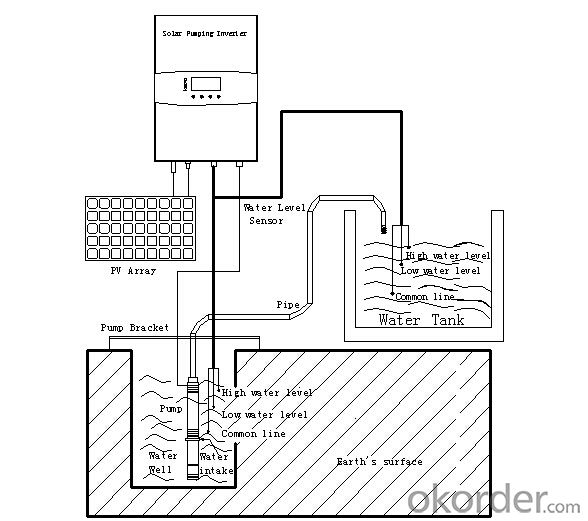
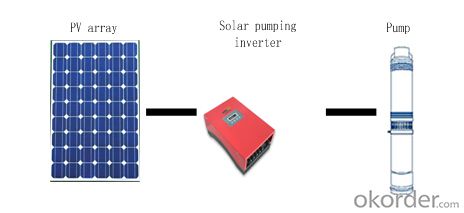
2.2 Application
Agricultural irrigation
Desert manage
Domestic water
Grassland animal husbandry
city waterscape
Island water supply
Landscape and fountain system of municipal engineering , city square , hotels and residence community
2.3 About product
This product is using a high performance digital signal processing chip, can provide solution for solar water pumpingsystem with high cost performance. Solar pumping system as a whole block diagram as shown in 2.
SHP series inverter has the following features:
a. True max power tracking technology (TMPPT) with our own intellectual property; effectively improve the use ratio of PV array. The stable tracking efficiency can reach 99.2% , Solving the problem of bad tracking efficiency and running unstability under the situation of sunlight intensity quick change when comparing with the traditional MPPT method .
b. Adopt efficient IPM power module from Mitsubishi Company with high reliability.
c. With the function of high and low water level detection , high safety factor.
d. Automatic anti-drying protection function , with multi-protection for motor
e. Multi-language LCD display , easy for operation , very user-friendly
f. The independent developed principal computer with our own intellectual properties , remote monitoring is available
g. Modular design , direct plug-in terminal , good-looking appearance, easy for installation , operation and maintenance .
h. Suitable for the pump adopted three phase asynchronous motor
i. Complete digital control , with the function of full automatic running and data storage .
j. Perfect protection system , with the protection function for lighting , over voltage , under voltage , short circuit , over loads , water drain off , low sunlight , over heating etc ,
k. Adopt the complete radiating system , so radiating efficiency is better and the service life is longer
l. Through strict environmental test , adapt the rigorous environment :-10℃~+50℃
m.No impacted mains supply power switch function (optional ), All-weather running available
n. Through strict environmental test , adapt the rigorous environment :-10℃~+50℃
FAQ
1. How fast will my system respond to a power outage?
Our solar inverters typically transfer to battery power in less than 16 milliseconds (less than 1/50th of a second).
2. What kind of batteries do the systems include?
Our solar backup electric systems use special high-quality electric storage batteries.
3. How do I install my system?
A solar backup inverter is connected to a home electric system , we will supply detailed installation manual and videos for our customers .
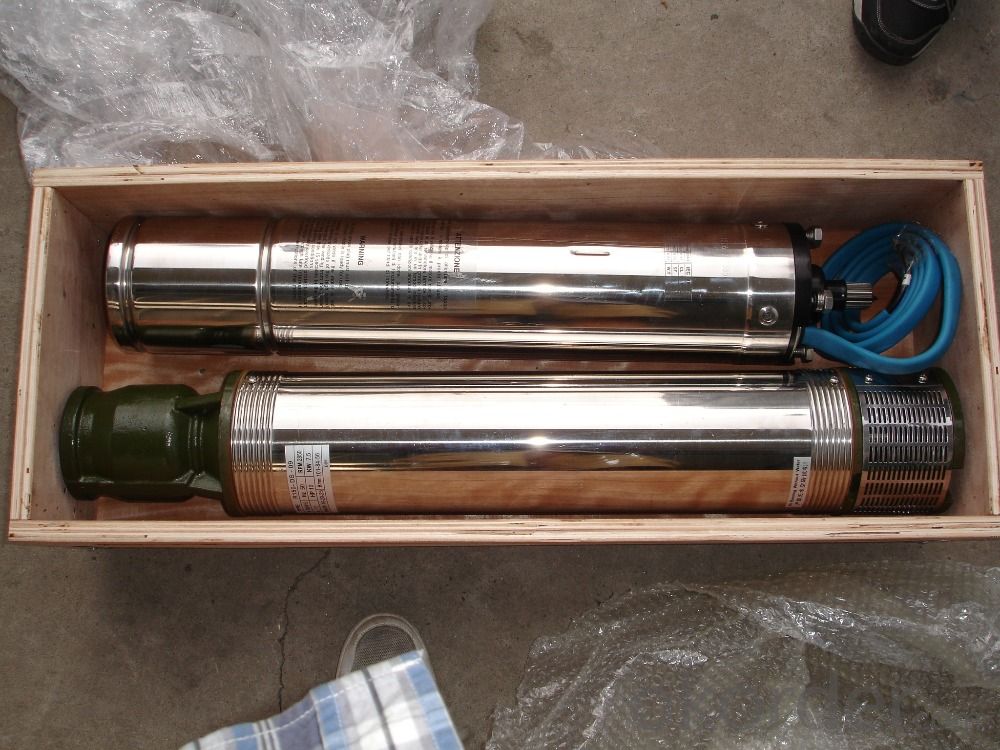
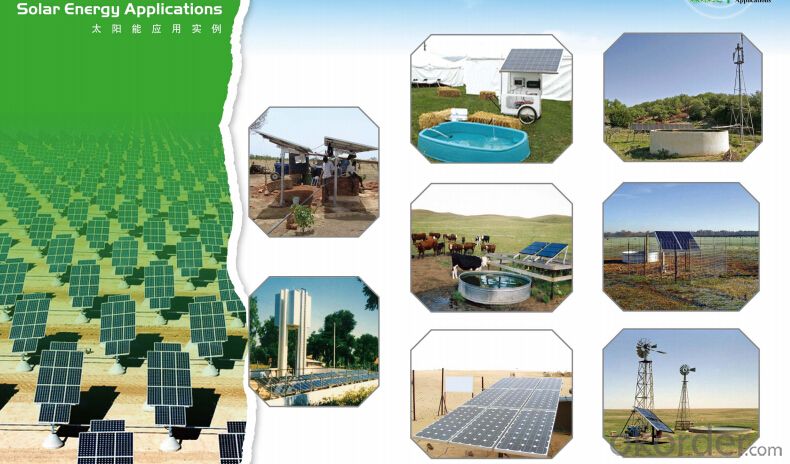
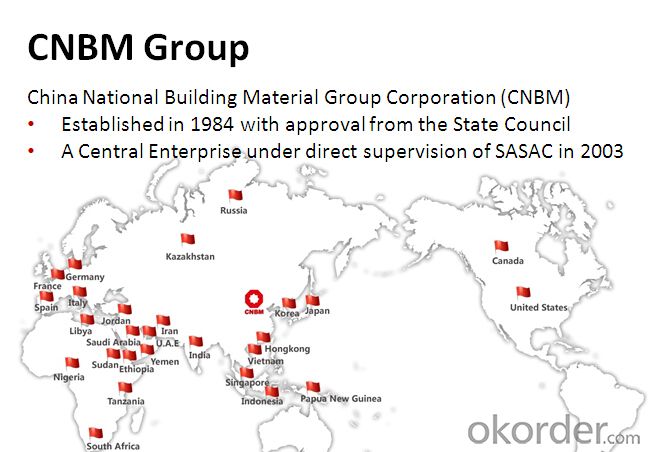



- Q: How does a solar pump handle water with high iron content?
- A solar pump can handle water with high iron content by utilizing a filtration system that removes or reduces the iron particles present in the water. This filtration system typically consists of a sediment filter or a combination of filters, such as iron removal filters or activated carbon filters, which effectively trap and remove the iron particles. By removing the iron content, the solar pump can operate smoothly and efficiently without any negative effects on its performance or the water quality.
- Q: Are solar pumps suitable for use in mining operations?
- Yes, solar pumps are suitable for use in mining operations. They offer numerous advantages such as cost-effectiveness, sustainability, and reliability. Solar pumps are not dependent on grid electricity, making them ideal for remote mining sites. Additionally, they require minimal maintenance and have a long lifespan, making them a practical choice for mining operations.
- Q: Can a solar pump be used for water circulation in HVAC systems?
- Indeed, water circulation in HVAC systems can be achieved by utilizing a solar pump. These pumps are specifically engineered to optimize energy consumption and serve as an eco-friendly substitute for conventional pumps that heavily rely on electricity or fossil fuels. By harnessing the power of solar energy, these pumps effectively facilitate the circulation of water within HVAC systems, providing the necessary heating or cooling as per requirement. Moreover, solar pumps contribute to the reduction of energy expenses and carbon emissions, solidifying their status as an environmentally conscious option for water circulation in HVAC systems.
- Q: Can solar pumps be installed by homeowners, or is professional installation necessary?
- Solar pumps can be installed by homeowners, but professional installation is recommended. While the installation process may not be overly complex, it requires knowledge of electrical systems, proper placement of solar panels, and understanding of plumbing connections. Professional installation ensures the system is correctly set up, maximizing its efficiency and durability. Additionally, professionals can provide guidance on system sizing, maintenance, and any necessary permits or regulations.
- Q: What is the role of batteries in a solar pump system?
- The role of batteries in a solar pump system is to store the excess energy generated by the solar panels during the day and provide power to the pump during non-sunlight hours or when there is insufficient sunlight. This allows for the continuous operation of the pump, ensuring a reliable water supply even when solar energy is not available.
- Q: Can a solar pump be used in areas with limited access for maintenance?
- Yes, a solar pump can be used in areas with limited access for maintenance. Solar pumps are designed to be low maintenance, durable, and reliable. They do not require fuel or electricity, and their components are built to withstand harsh weather conditions. Additionally, they have fewer moving parts, reducing the need for regular servicing. Therefore, solar pumps are well-suited for remote locations with limited accessibility for maintenance.
- Q: Can a solar pump be integrated with existing water systems?
- Yes, a solar pump can be integrated with existing water systems. Solar pumps are designed to be versatile and can be easily connected to existing water systems. The key requirement is a source of solar energy, usually in the form of solar panels, to power the pump. Once the solar panels are connected to the pump, it can be integrated into the existing water system using appropriate plumbing connections. This allows the solar pump to draw water from the source and distribute it through the existing pipelines, tanks, or irrigation systems. The integration process may vary depending on the specific setup of the water system, but with the right expertise and equipment, it is definitely possible to integrate a solar pump seamlessly into an existing water system.
- Q: Can solar pumps be used for irrigation?
- Yes, solar pumps can certainly be used for irrigation. Solar-powered irrigation systems are increasingly being adopted as a sustainable and cost-effective solution for agricultural water needs. These pumps utilize energy from the sun to power water pumps, allowing farmers to efficiently irrigate their fields without relying on grid electricity or fuel-based generators. Solar pumps offer a reliable and eco-friendly alternative that can effectively meet irrigation requirements in areas with access to sunlight.
- Q: Can a solar pump system be integrated with a smart home or automation system?
- Certainly! A smart home or automation system can indeed be integrated with a solar pump system, providing enhanced efficiency, convenience, and control over the pump's operation. By connecting the solar pump system to a smart home or automation system, users are able to remotely monitor and control the pump's functions. This can be achieved through a smartphone app or a central control panel within the smart home setup. Users have the flexibility to easily adjust the pump's settings, such as flow rate and timing, from any location with an internet connection. Furthermore, the integration with a smart home or automation system allows the solar pump system to synchronize with other devices and systems in the house. For instance, the pump can be programmed to automatically activate or deactivate based on temperature or humidity levels, or it can be linked to a rainwater harvesting system to ensure efficient utilization of water. In addition, integrating a solar pump system with a smart home or automation system enables data monitoring and analysis. Real-time data such as solar irradiance levels, water flow rate, and energy consumption can be gathered and analyzed to optimize the pump system's performance. This information proves valuable in identifying potential issues, tracking energy savings, and making well-informed decisions concerning maintenance or upgrades. In conclusion, integrating a solar pump system with a smart home or automation system offers a multitude of advantages, including remote control capabilities, synchronization with other devices, and data monitoring. This integration facilitates a more efficient and convenient operation of the solar pump system, ultimately enhancing overall energy efficiency and sustainability in the smart home or automation arrangement.
- Q: Can a solar pump be used for water supply in a remote village?
- Yes, a solar pump can be used for water supply in a remote village. Solar pumps are an excellent solution for remote areas with limited access to electricity as they rely on solar energy to operate. They are efficient, cost-effective, and environmentally friendly, making them suitable for providing a reliable water supply for remote villages.
Send your message to us
Solar Pump System 0.1kw-37kw for Agricultural Irrigation
- Loading Port:
- Shanghai
- Payment Terms:
- TT OR LC
- Min Order Qty:
- 10 pc
- Supply Capability:
- 1000 pc/month
OKorder Service Pledge
OKorder Financial Service
Similar products
Hot products
Hot Searches
Related keywords
